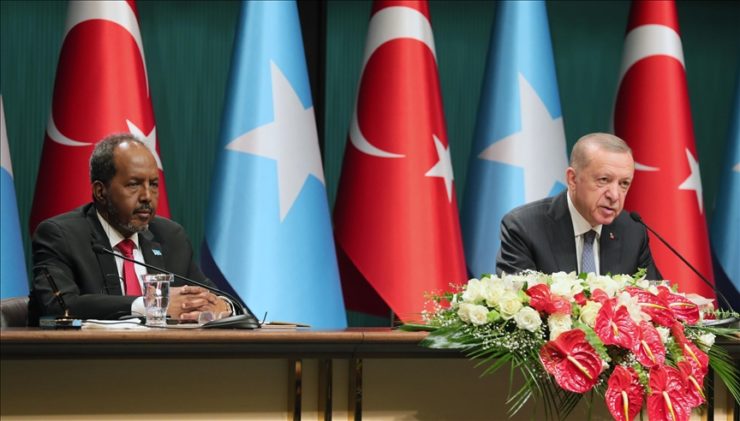
In recent months, the Horn of Africa has become one of the world’s most active sources of political news. No sooner have analysts discussed the reasons for the signing, possible ways of implementation and possible consequences of the Memorandum of Understanding between Ethiopia and Somaliland, than new stories have appeared on the agenda. In particular, we are talking about the agreement signed between Turkey and the Federal Government of Somalia on 22 February 2024. Formally, the Turkish side undertook only to provide direct assistance to the Somali military in securing the maritime borders. In practice, however, such an obvious step towards institutionalising the existing contacts between Ankara and Mogadishu requires further interpretation, which is particularly important in the context of regional tensions and, in particular, the sharp deterioration in Ethiopian-Somali relations. The first part of this article will therefore examine the nature of the Somali-Turkish agreement: is this treaty on military and economic cooperation a symbol of a qualitative leap in the development of relations between the two countries or, on the contrary, should it be seen as a natural consequence – one of many steps in the successive rapprochement between Ankara and Mogadishu?
The origins of the current diplomatic and military rapprochement between Turkey and Somalia can be traced back to the early 2010s, when Turkish military instructors began training their Somali counterparts, who were forced to contend with the constant threat of the Al-Shabaab terrorist group, and humanitarian cooperation programmes were launched between the two countries. Turkish politicians have traditionally explained their interest in deepening friendly relations and supporting the Somali government in terms of pan-Islamic cooperation and mutual assistance – a nice but far from truthful “screen”. As is often the case in politics, soft power instruments and aid programmes are by no means altruistic. By demonstrating to the world its willingness and ability to participate in the lives of the most vulnerable states, Turkey is asserting itself as one of the regional power centres, while acquiring a positive image in the eyes of other developing states. In addition, by becoming a key military and humanitarian partner of the federal government of Somalia, Ankara, by default, has acquired the ability to exert decisive economic influence in the country, including by establishing control over the most important assets. At the same time, the choice of Somalia as a “demonstrative partner” is explained not only by the common religious identity and cultural proximity, but also by the extreme weakness of the Somali statehood: numerous challenges and threats, coupled with the lack of alternatives, make Mogadishu unpretentious in choosing friends, and even minor investments can make a favourable impression against the backdrop of the prevailing devastation in the country.
After 10 years of cooperation, Turkey has gained at least two valuable assets. In 2017, for example, Mogadishu hosted the largest Turkish military base abroad, and in 2020 a 14-year contract was signed for Turkey’s Albayrak Group to manage the port of Mogadishu. As a result, Turkey has materialised its presence in the region, and although the port of Mogadishu is inferior to the seaports of Djibouti, Berbera and Bosaso, such success clearly demonstrates Ankara’s direct involvement in international affairs far beyond its region. It should be noted, however, that the UAE is also present in Somalia alongside Turkey, participating in the training of government forces and reportedly having a military base in Jubaland.
In general, it seems possible to state that the agreement on military and economic cooperation between Turkey and Somalia signed at the end of February 2024 should not be interpreted as the beginning of bilateral cooperation in the security sphere: such contacts and practices have existed since 2011 and have only been formally consolidated with a number of additional accents. At the same time, the political significance of the treaty signed at the height of the Somaliland crisis requires further analysis. The institutionalisation of existing relations in the field of military cooperation does not come “out of the blue”. Rather, it heralds a new phase in the interaction between the two states, which previously, for various reasons, preferred not to create unnecessary ” news hook” and not to advertise the degree of mutual interest and involvement. Now, external actors are receiving a clear message: Ankara and Mogadishu are willing to publicly engage each other and develop security cooperation against the backdrop of region-wide political turbulence.
Ivan KOPYTZEV – political scientist, research intern at the Centre for Middle Eastern and African Studies, Institute for International Studies, MGIMO, Russian Ministry of Foreign Affairs, especially for online magazine “New Eastern Outlook”